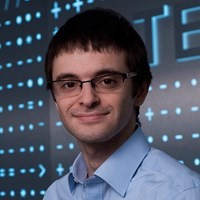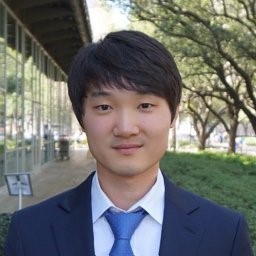The IEEE Nanotechnology Council announces its 2021 Award Winners. Individual Awards were presented at its 21st IEEE International Conference on Nanotechnology (NANO 2021) held virtually on 28-30 July 2021.
PIONEER AWARD IN NANOTECHNOLOGY
The NTC Pioneer Award in nanotechnology is to recognize individuals who by virtue of initiating new areas of research, development or engineering have had a significant impact on the field of nanotechnology. The award is intended for people who are in the mid or late portions of their careers, i.e., at least 10 years beyond his or her highest earned academic degree on the nomination deadline date.
2021 Pioneer Award Recipient
Prof. Jean-Pierre Leburton, University of Illinois Urbana-Champaign
“For pioneering contribution to the theory and simulation of semiconductor nanostructures and low dimensional nanoscale devices.”
 Jean-Pierre Leburton received his Ph.D. from the University of Liege (Belgium) in 1978. He is a professor in the UIUC Department of Electrical and Computer Engineering and a research professor in the Holonyak Micro- and Nano-Technology Laboratory and in the Coordinated Science Laboratory. He is also Professor of Physics at UIUC.
Jean-Pierre Leburton received his Ph.D. from the University of Liege (Belgium) in 1978. He is a professor in the UIUC Department of Electrical and Computer Engineering and a research professor in the Holonyak Micro- and Nano-Technology Laboratory and in the Coordinated Science Laboratory. He is also Professor of Physics at UIUC.
Professor Leburton’s expertise is the theory and simulation of nanoscale semiconductor devices and low-dimensional systems. His research focuses more specifically on transport and optical processes in semiconductor nanostructures such as quantum wells, quantum wires and quantum dots. Current research projects involve electronic properties of self-assembled dots for high performance lasers, single-electron charging and spin effects in quantum dots, modeling of nanocrystal floating gate flash memory devices, nanoscale Si MOSFET’s and carbon nanotubes and graphene nanostructures. His research deals also with dissipative mechanisms involving electron-phonon interaction in nanostructures for mid- and far-infrared intra-band lasers. Approaches to these problems involve use of sophisticated numerical techniques such as Monte-Carlo simulation and advanced 3D self-consistent Schroedinger-Poisson model including non-equilibrium transport for full scale nanodevice modeling.In the last 18 years, he turned his interest toward the interaction between living systems and semiconductors to investigate programming and sensing biomolecules with nanoelectronics.
EARLY CAREER AWARD IN NANOTECHNOLOGY
The Nanotechnology Council has established an Early Career Award to recognize individuals who have made contributions with major impact on the field of nanotechnology. Up to two awards may be given per year. There may be one award for academics (persons employed by colleges or universities) and one for persons employed by industry or government organizations.
2021 Early Career Award Recipient – Academia
Prof. Max Shulaker, Massachusetts Institute of Technology
“For his pioneering work in carbon nanotubes and the broad area of nano-systems, including nanofabrication technologies, nanodevices, circuits, and architectures.”
 Professor Max Shulaker began as Assistant Professor in the Department of Electrical Engineering and Computer Science in 2016, where he leads the Novels (Novel Electronic Systems Group) at MIT. Previously to joining MIT, he was at Stanford University where he received his B.S., Masters, and PhD in Electrical Engineering. Prof. Shulaker’s research interests include the broad area of nanosystems. His research group focuses on understanding and optimizing multidisciplinary interactions across the entire computing stack – from low-level synthesis of nanomaterials, to fabrication processes and circuit design for emerging nanotechnologies, up to new architectures – to enable the next generation of high performance and energy-efficient computing systems. His research results include the demonstration of the first carbon nanotube computer(highlighted on the cover of Nature and presented as a Research Highlight to the US Congress by the US NSF), the first digital sub-systems built entirely using carbon nanotube transistors (awarded the ISSCC Jack Raper Award for Outstanding Technology Directions Paper), the first monolithically-integrated 3D integrated circuits combining arbitrary vertical stacking of logic and memory, the highest performance carbon nanotube transistors to-date, and the first highly-scaled carbon nanotube transistors fabricated in a VLSI-compatible manner.
Professor Max Shulaker began as Assistant Professor in the Department of Electrical Engineering and Computer Science in 2016, where he leads the Novels (Novel Electronic Systems Group) at MIT. Previously to joining MIT, he was at Stanford University where he received his B.S., Masters, and PhD in Electrical Engineering. Prof. Shulaker’s research interests include the broad area of nanosystems. His research group focuses on understanding and optimizing multidisciplinary interactions across the entire computing stack – from low-level synthesis of nanomaterials, to fabrication processes and circuit design for emerging nanotechnologies, up to new architectures – to enable the next generation of high performance and energy-efficient computing systems. His research results include the demonstration of the first carbon nanotube computer(highlighted on the cover of Nature and presented as a Research Highlight to the US Congress by the US NSF), the first digital sub-systems built entirely using carbon nanotube transistors (awarded the ISSCC Jack Raper Award for Outstanding Technology Directions Paper), the first monolithically-integrated 3D integrated circuits combining arbitrary vertical stacking of logic and memory, the highest performance carbon nanotube transistors to-date, and the first highly-scaled carbon nanotube transistors fabricated in a VLSI-compatible manner.
2021 Early Career Award Recipient – Government
Dr. Myeong-Lok Seol, NASA Ames Research Center, USA
“For innovative contributions to the development of triboelectric power generation and printed supercapacitors for space missions.”
 Dr. Myeong-Lok Seol is currently a Research Scientist in Center of Nanotechnology of NASA Ames Research Center, California. His research interest includes energy harvesting and nanotechnology-driven electronic devices. He completed his education at the Korea Advanced Institute of Science and Technology, where he was received his B.S. Masters, and PhD in electrical engineering.
Dr. Myeong-Lok Seol is currently a Research Scientist in Center of Nanotechnology of NASA Ames Research Center, California. His research interest includes energy harvesting and nanotechnology-driven electronic devices. He completed his education at the Korea Advanced Institute of Science and Technology, where he was received his B.S. Masters, and PhD in electrical engineering.
Dr. Myeong-Lok Seol’s expertise focuses on energy devices and systems (energy harvesting, energy storage, energy conversion system, self-powered sensors, nanotechnology-enabled energy devices), printed electronics (3D printing, printed functional devices, wet chemistry & custom ink formulation), nanotechnology (nanomaterials, nanofabrication, nanoanalysis tools, wet chemistry), and semiconductor device electronics (device fabrication, solid-state physics, finite-element simulation, transistor, memory).
Dr. Myeong-Lok Seol was awarded the NTC Early Career Award for his innovative contributions to the development of triboelectric power generation and printed supercapacitors for space missions.
DISTINGUISHED SERVICE AWARD
The Nanotechnology Council has established a Distinguished Service Award to recognize an individual who has performed outstanding service for the benefit and advancement of Nanotechnology Council.
2021 Distinguished Service Award Recipient
Prof. John Yeow, University of Waterloo, Canada
“For distinguished service, including accomplishments as an Editor-in-Chief of the IEEE Nanotechnology Magazine and other service achievements.”
 John T. W. Yeow received the B.A.Sc. degree in electrical and computer engineering, and M.A.Sc. and PhD. degrees in mechanical and industrial engineering from the University of Toronto, Toronto, ON, Canada. He is currently a Professor and a University Research Chair in the Department of Systems Design Engineering at University of Waterloo, Waterloo, ON, Canada.
John T. W. Yeow received the B.A.Sc. degree in electrical and computer engineering, and M.A.Sc. and PhD. degrees in mechanical and industrial engineering from the University of Toronto, Toronto, ON, Canada. He is currently a Professor and a University Research Chair in the Department of Systems Design Engineering at University of Waterloo, Waterloo, ON, Canada.
He is focused on the development of micro/nanodevices for a wide range of applications. He is a recipient of the Professional Engineers Ontario Young Engineer Medal, Professional Engineers Ontario Engineering Excellence Award, Natural Science & Engineering Research Canada Innovation Challenge Award, Douglas R. Colton’s Medal of Research Excellence, Micralyne Microsystems Design Award, Ontario Ministry of Research and Innovation’s Early Researcher Award, University of Toronto Alumni Association 7T6 Early Career Award, 2011 IEEE NANO Excellence Paper award and IEEE Canada Outstanding Engineer Award. He was a Canada Research Chair in Micro/Nanodevices (2004 – 2019). He served as the Editor-in-Chief of the IEEE Nanotechnology Magazine from 2014 – 2019, a Senior Editor of the IEEE Transactions on NanoBioscience, and an Associate Editor of the IEEE Transactions of Nanotechnology. He is a Fellow of the Canadian Academy of Engineering, the Engineering Institute of Canada, Engineers Canada, and a Member of College of New Scholars, Artists and Scientists of the Royal Society of Canada. He was a IEEE Nanotechnology Technical Council Distinguished Lecturer.
TECHNICAL COMMITTEE AWARD
Each year, the Council will provide an award for the best Technical Committee for the prior year.
The winner of the 2020 Technical Committee Award is:
 TC 3: Nanofabrication
TC 3: Nanofabrication
Chair: Wei Wu
“for starting new initiatives and promoting technological innovation and excellence in nanotechnology for the benefit of humanity through participation in NTC conferences, publications and education, and outreach activities.”
Tags: Council Awards, Distinguished Service Award, Early Career Award, Pioneer Award, TC Award
